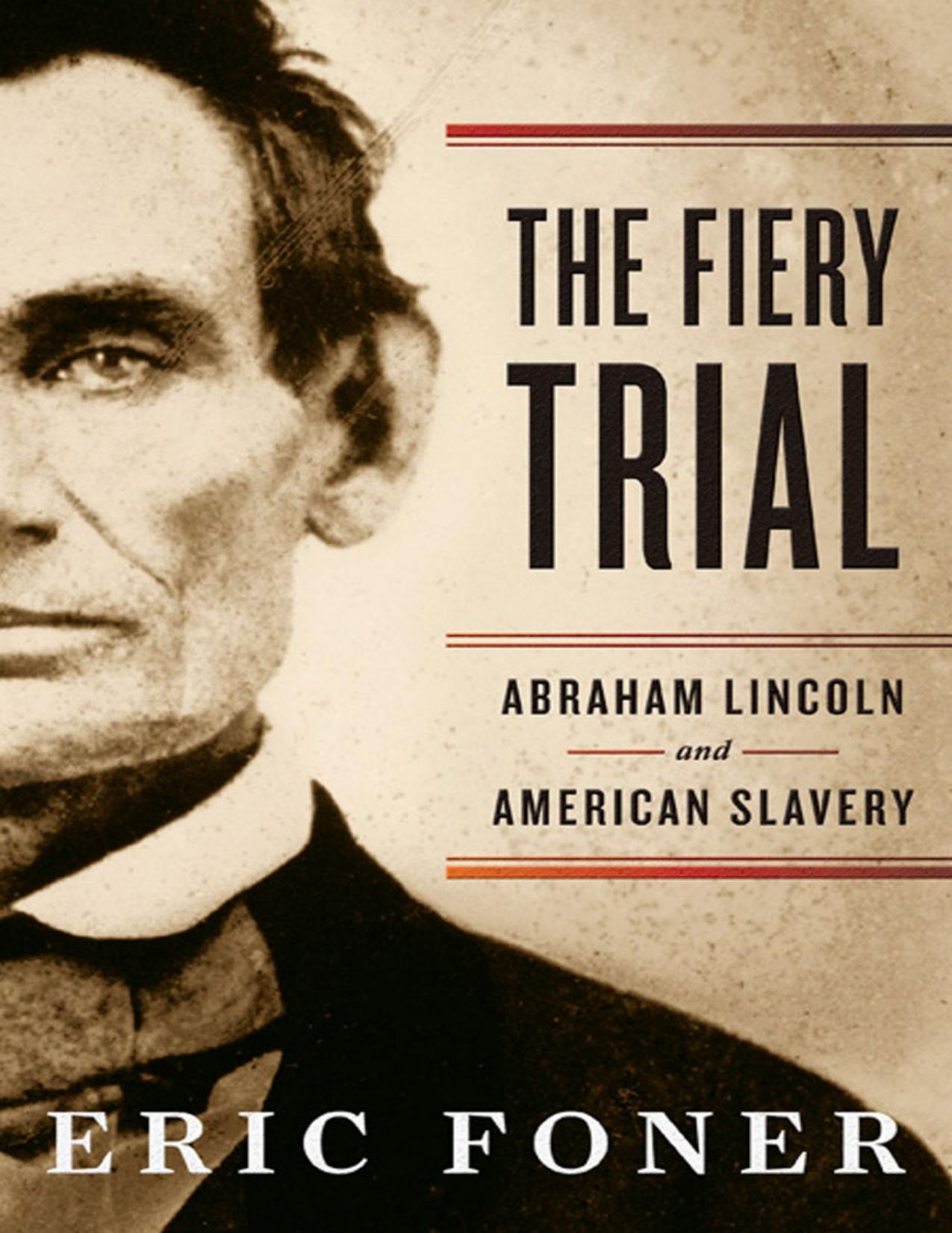The Fiery Trial by Eric Foner

Author:Eric Foner [Foner, Eric]
Language: eng
Format: epub, mobi, pdf
Tags: #genre
ISBN: 9780393066180
Publisher: W. W. Norton & Company
Published: 2010-09-30T04:00:00+00:00
7
“Forever Free”: The Coming of Emancipation
EVEN AS THE ARMY of General George B. McClellan embarked on the Peninsular campaign, a military commander with a very different political outlook compelled Lincoln to clarify yet again his policy toward slavery. In March 1862, Major General David Hunter, a West Point graduate from Illinois and one of the few abolitionists in the officer corps, was appointed commander of the Department of the South. On paper the department encompassed all of South Carolina, Georgia, and Florida; in reality, the army’s control did not extend much beyond the South Carolina Sea Islands, captured the previous November. Before departing for his new post, Hunter asked Secretary of War Stanton for permission to “have my own way on the subject of slavery,” including the authority to “arm such loyal men as I can find in the country.” Since the entire white population of the islands had fled, Hunter clearly intended to enlist black soldiers. When Stanton failed to reply, Hunter took his silence as permission to proceed. On May 9, 1862, he declared all the slaves in his department (over 900,000 men, women, and children) “forever free,” and instructed his officers to accept black volunteers.1
Hunter may have been a talented general, but when it came to politics he displayed a certain naiveté. When he asked Stanton’s permission to attack slavery he added, “The administration will not be responsible.” Of course, his proclamation, if not revoked, became administration policy. When Secretary of the Treasury Chase urged Lincoln not to overturn the order, the president sent a sharp reply: “No commanding general shall do such a thing upon my responsibility without consulting me.” At a time when he was energetically promoting his plan of border emancipation based on the principles of gradualism, compensation, and colonization—every one of which Hunter’s order violated—it was inconceivable that Lincoln would allow the edict to stand. With Stanton’s assistance, Lincoln drew up a statement revoking Hunter’s order, which he made public on May 19. Like his order rescinding John C. Frémont’s emancipation decree in August 1861, it denied that army officers had the authority “to make proclamations declaring the slaves of any State free.” This time, however, Lincoln appealed directly to the people of the border states to take up his offer of compensated emancipation: “The change it contemplates would come gently as the dews of heaven, not rending or wrecking anything. Will you not embrace it?” The death of slavery, he strongly implied, had become inevitable: “You cannot if you would, be blind to the signs of the times.”2
Carl Schurz, back in the United States after a stint as ambassador to Spain, had urged Lincoln, if he overturned Hunter’s order, not to preclude future action. “You can hardly tell at the present moment,” Schurz wrote, “how far you will have to go six weeks hence…. The arming of negroes and the liberation of those slaves who offer us aid and assistance are things which must and will inevitably be done.” And in his
Download
The Fiery Trial by Eric Foner.mobi
The Fiery Trial by Eric Foner.pdf
This site does not store any files on its server. We only index and link to content provided by other sites. Please contact the content providers to delete copyright contents if any and email us, we'll remove relevant links or contents immediately.
| U.K. Prime Ministers | U.S. Presidents |
Waking Up in Heaven: A True Story of Brokenness, Heaven, and Life Again by McVea Crystal & Tresniowski Alex(37812)
Empire of the Sikhs by Patwant Singh(23086)
We're Going to Need More Wine by Gabrielle Union(19046)
Hans Sturm: A Soldier's Odyssey on the Eastern Front by Gordon Williamson(18592)
Leonardo da Vinci by Walter Isaacson(13336)
The Radium Girls by Kate Moore(12028)
Tools of Titans by Timothy Ferriss(8396)
Educated by Tara Westover(8054)
How to Be a Bawse: A Guide to Conquering Life by Lilly Singh(7486)
Permanent Record by Edward Snowden(5847)
The Last Black Unicorn by Tiffany Haddish(5636)
The Rise and Fall of Senator Joe McCarthy by James Cross Giblin(5281)
Promise Me, Dad by Joe Biden(5154)
The Wind in My Hair by Masih Alinejad(5095)
A Higher Loyalty: Truth, Lies, and Leadership by James Comey(4964)
The Crown by Robert Lacey(4817)
The Iron Duke by The Iron Duke(4356)
Joan of Arc by Mary Gordon(4113)
Stalin by Stephen Kotkin(3968)
